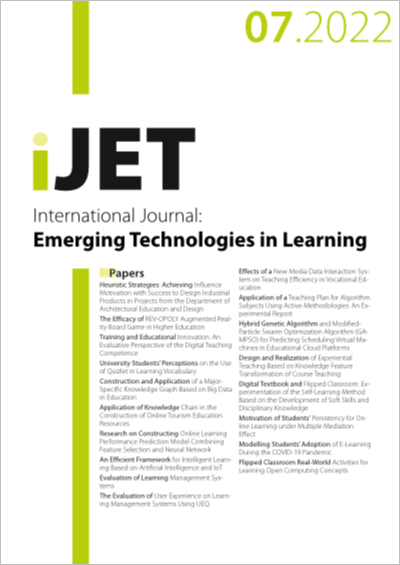Training and Educational Innovation: An Evaluative Perspective of the Digital Teaching Competence
DOI:
https://doi.org/10.3991/ijet.v17i07.28867Keywords:
Digital Teaching Competence, higher education, continuing teacher education, educational innovationAbstract
This article analyzes the assessment of the four development levels of the Digital Teaching Competence (DTC) to recognize the needs and formulation of challenges in training and educational innovation required in the pedagogical practices of university professors under the current context of the Covid-19 pandemic. The study used an empirical-analytical methodology with a non-experimental, transactional, descriptive design. The sample design was probabilistic, estimated with 95% confidence and 5% error among 252 teachers from various faculties of the University of La Guajira (Colombia). The selected instrument corresponded to the rubric's application to evaluate the university professor's digital teaching competence in Latin America. Among the study's significant results, we highlight that the rubric presented a high Cronbach's alpha reliability (α: 0.947). In the general assessment of DTC development, it was estimated that 78.2% of teachers are in the first two levels of DTC development assessment (Beginning and Middle). The evaluation rubric allows identifying challenges and opportunities that teacher training must address to advance the professional development of professors.
Downloads
Published
How to Cite
Issue
Section
License
Copyright (c) 2022 ALBA RUTH PINTO-SANTOS, Carlos Enrique George Reyes, Omar Fernando Cortés-Peña

This work is licensed under a Creative Commons Attribution 4.0 International License.



